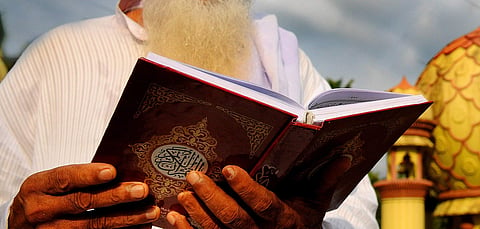

NEW DELHI: The All India Muslim Personal Law Board has submitted in the Supreme Court that any person other than a member of a religious denomination should not be allowed to question the faith of that religious denomination.
The Board has filed an application opposing the PIL filed by BJP leader and advocate Ashwini Upadhyay challenged the validity of practices of polygamy and 'nikah halala' among Muslims.
"A member of a religious denomination belonging to that faith, in the event of any violation of their fundamental rights, only to the extent of a threat of life and liberty, may be permitted to seek the protection of the court and determine the issues of faith arising there from," said the application by the board, a registered society of Islamic clerics and scholars.
Upadhyay's petition has relied upon the top court verdict declaring instant triple talaq as void ab initio, and also its verdict on the right to privacy.
The application also contended that personal laws do not derive their validity on the ground that they have been passed or made by legislature or other competent authority. The Board insists the foundational sources of personal law are their respective scriptural texts.
"The Mohammedan Law is founded essentially on the Holy Quran and the Hadith of the Prophet Mohammed (Peace be upon him) and thus it cannot fall within the purview of the expression laws of force, as mentioned in Article 13 of the Constitution, and hence its validity cannot be tested on a challenge based on Part III of the Constitution," it held.
The Board also cited its view on the Uniform Civil Code, saying that Article 44 in the Constitution, which talked about having a common law for the entire country, was "only a directive principle of state policy and is not enforceable". According to the application, the top court has already dealt with the issue of polygamy in 1997 and declined to issue any directive at that point in time.
The petition by Upadhyay has claimed such practices violate Muslim women's right to live with dignity and their privacy.
The Board has now claimed these practices may not fall under the purview of the "law in force". It has also sought top court's permission to present its arguments when this petition is listed for hearing.